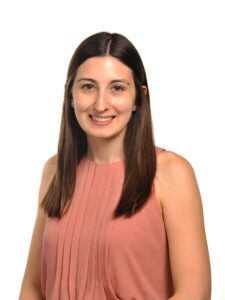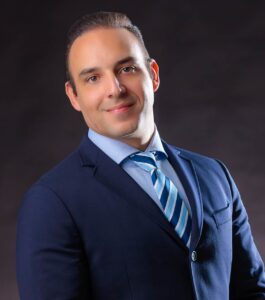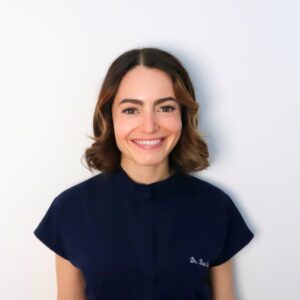Focus 2023 Winner’s Circle
Congratulations to the members of the 2023 Winner’s Circle!
During the spring and fall competitive research grant cycles, the highest-scoring resident and faculty proposals receive a $500 cash award. The goal is to pay tribute to the applicants whose efforts reflect the highest quality science. Congratulations to the members of the 2023 winner’s circle
Dr. Lauren Rotondi, Spring 2023 Resident Winner
 Dr. Lauren Rotondi’s research proposal: Investigating the Role of Cell Adhesion Molecules in Macrophage – Stem Cell from Apical Papilla Interactions Using a 3D Organoid Model, explores regeneration as a biologically based procedure. Her basic science research will contribute to a better understanding of the biology of periapical healing and regeneration by investigating how immune cells and stem cells communicate to guide this repair process. Dr. Rotondi is interested in applying her research to immunomodulation strategies and cell-based regeneration therapies.
Dr. Lauren Rotondi’s research proposal: Investigating the Role of Cell Adhesion Molecules in Macrophage – Stem Cell from Apical Papilla Interactions Using a 3D Organoid Model, explores regeneration as a biologically based procedure. Her basic science research will contribute to a better understanding of the biology of periapical healing and regeneration by investigating how immune cells and stem cells communicate to guide this repair process. Dr. Rotondi is interested in applying her research to immunomodulation strategies and cell-based regeneration therapies.
In this in vitro project, a 3D collagen-based organoid model previously developed in the Kishen Lab will be utilized to study the interaction between Stem Cells from the Apical Papilla (SCAP) and macrophages. Previously, the cytokine interactions between these two cell-types were analyzed. In this project the focus is on the specific proteins mediating direct cell-to-cell contact, an important component of cell communication. Real Time – Quantitative Polymerase Chain Reaction and 3D Immunofluorescence Imaging will be used to analyze which proteins are mediating these interactions. The expression of these proteins will be compared between pro-inflammatory and anti-inflammatory environments, simulated by LPS and IL-4 respectively. She hypothesizes that the microenvironment will affect the direct cell-to-cell crosstalk between macrophages and SCAP and this will ultimately affect regeneration.
Dr. Rotondi’s findings will improve our understanding of the biology mediating periapical wound healing and regeneration. The project will also further validate the use of the 3D collagen based organoid model to better simulate in vivo conditions compared to a 2D co-culture model. She is hoping her results can help guide immunomodulation strategies and cell-based regeneration for patients with necrotic young permanent teeth, so that they can be retained as long as possible.
Dr. Rotondi first heard about the Foundation when Dr. Kusienski, Foundation President, came to visit the University of Toronto to speak to residents. Dr. Rotondi said the Foundation’s support has made a big difference in supporting their research by providing funding for access to the Imaging Centre at The Hospital for Sick Children, ordering many antibodies, and purchasing the numerous kits needed for the project. Her research would not have been possible without the support of the Foundation.
Dr. Lauren Rotondi is a second-year resident at the University of Toronto in the Master of Science in Endodontics program. She first decided to pursue endodontics with a desire to become an expert in helping people save their teeth through root canal treatment. Dr. Rotondi is thankful for the guidance of her supervisor, Dr. Kishen, and all the other faculty members at the University of Toronto.
In her spare time, Dr. Rotondi enjoys being with her family and spending time outdoors.
Dr. Frederico Martinho, Fall 2023 Faculty Winner
 Dr. Martinho’s Fall 2023 Competitive Research: Piezoelectric Device and Dynamic Navigation System Integration for Bone-window Guided Surgery: A Cadaver Study, will explore the DNS technology integrated into the piezoelectric device for bone-window-guided surgery. The bone window technique offers several advantages, including minimizing soft tissue damage, better hemostasis and visualization, less bone injury and debris, preservation of viable cells, and less pain. Bone-window-guided surgery with DNS technology can lead to a more precise and efficient approach. The bone window technique could ultimately lead to faster and complete healing of the cortical bone.
Dr. Martinho’s Fall 2023 Competitive Research: Piezoelectric Device and Dynamic Navigation System Integration for Bone-window Guided Surgery: A Cadaver Study, will explore the DNS technology integrated into the piezoelectric device for bone-window-guided surgery. The bone window technique offers several advantages, including minimizing soft tissue damage, better hemostasis and visualization, less bone injury and debris, preservation of viable cells, and less pain. Bone-window-guided surgery with DNS technology can lead to a more precise and efficient approach. The bone window technique could ultimately lead to faster and complete healing of the cortical bone.
DNS was inherited from implant dentistry. It has been widely explored for implant surgery. After proving the feasibility of the DNS for endodontic procedures, and after challenging the technology for selected treatments, we identified limitations. To overcome some of the DNS limitations and optimize its use for endodontic procedures, we started integrating the system into other technologies such as augmented reality (AR) and recently to the piezoelectric device.
Advanced technology in endodontics has evolved over the last several decades. The introduction of CBCT has revolutionized the specialty. With the advancements of CBCT, modern surgical procedures have been introduced and explored using new technologies. Computer-aided surgical techniques using static or dynamic navigation are one of the latest advancements in the endodontic field. Computer-aided surgical techniques are game-changing, allowing surgeons to deliver minimally invasive treatment more accurately and efficiently than conventional techniques. Moreover, it enables the specialist to consider surgery in challenging areas that would otherwise require extractions.
Dynamic navigation systems (DNS) have recently been widely explored in endodontics. The DNS, inherited from implant dentistry, is like a “GPS” for the handpiece, which uses anatomy from the CBCT as a “road map.” The surgical procedure is pre-planned in the CBCT scan, and the treatment is further delivered under dynamic navigation. DNS technology has multiple applications in endodontics, including non-surgical and surgical procedures. Among the numerous applications, previous studies demonstrated the potential of the DNS in delivering minimally invasive access cavity, root post-preparation and -removal, and osteotomy.
Dr. Martinho’s research group has been awarded numerous competitive grants from the Foundation to explore DNS applications. Their early DNS research projects mostly focused on determining the accuracy and efficiency of the DNS in delivering surgical procedures and comparing it to conventional freehand techniques. Later, they shifted their interests to challenging the DNS technology against the static navigation technique using surgical guides. Recently, they have demonstrated the feasibility of integrating DNS into augmented reality (AR) and piezoelectric devices.
Dr. Frederico Martinho is currently a full-time faculty at the University of Maryland School of Dentistry (UMSOD), where he is the Predoctoral Director. He is a regular Faculty member of the graduate school at the University of Maryland. Dr. Martinho is involved in predoctoral and postgraduate teaching. He established his research lab at UMSOD in 2017. Dr. Martinho’s research interests are microbiology applied to endodontics and host immune responses to endodontic infections. Current studies include understanding the microbiome involved in root canal infection and the impact of treatments on this microbiome. Additionally, Dr. Martinho explores advanced technologies in Endodontics.
Dr. Martinho graduated from Dental School in 2004, and received his Endodontic Certificate in the Brazilian Navy, MS and PhD in State University of Campinas (FOP-UNICAMP, Brazil). He has been in academia since 2012.
During his free time, Martinho enjoys traveling and learning about new cultures. He also enjoys sports, lifting weights, and riding horses.
Dr. Dani Stein-Meyerson, Fall 2023 Resident Winner

The objective of her study is to evaluate the effect of access cavity design and degree of pulp chamber roof removal on the microstrain distribution patterns under different levels of functional loading using a digital moiré interferometry (DMI).
In contemporary endodontics, there has been a growing trend towards conservative, or minimally invasive techniques. This philosophy aims to preserve the maximal amount of tooth structure during root canal treatment procedures in the hopes that this will preserve strength of teeth following root canal treatment.
Dr. Stein hopes the study will provide more information on how the use of minimally invasive techniques influences biomechanical forces on dental hard tissue following endodontic treatment.
Using the highly sensitive optical technique of digital moiré interferometry (DMI), Dr. Stein is measuring strain distribution on extracted mandibular first molars and premolars under different physiological loads. Dr. Stein’s study will compare how a conservative endodontic access versus a larger, traditional endodontic access preparation affects strain distribution in two regions of interest: the coronal and cervical dentin.
Dr. Stein is fortunate to be performing her research with The Kishen lab, which is the only lab in North America with access to the high-resolution DMI technology. She is grateful for the guidance and support from her supervisor, Dr. Kishen, a prolific contributor to the field of Endodontics, and the Foundation’s support, which has been crucial to fund her research and to achieve her project goals. Dr. Stein remarked that the process of writing the grant proposal to the Foundation was beneficial, and helped to crystallize her own understanding of how and why her research is being done. To date, Dr. Stein has completed preliminary trials to finalize her precise experimental protocols. She is the principal investigator of the proposed study.
Dr. Stein’s journey to endodontics began by shadowing Dr. Don Chorkawy, who became a mentor and exposed her to what endodontics was like. She went on to shadow in the Graduate Endodontist Clinic at the University of Toronto’s specialty program, and in her 4th year decided to participate in a table clinic at the AAE’s Annual Meeting and continues her path pursuing endodontics.
Dr. Dani Stein-Meyerson obtained her Doctor of Dental Surgery degree from the University of Toronto, Faculty of Dentistry in 2020, where she was awarded the Student Leadership Award in her graduating year. Following her dental school graduation, Dr. Stein worked as a general dentist in Thunder Bay, Ontario for one year prior to entering her endodontic residency. Currently, she is in her final year of the 3-year Masters in Endodontics Program at the University of Toronto, where she is serving as Chief Resident.
She and her husband enjoy travelling and hiking with their two dogs, Dobby and Noodle.




